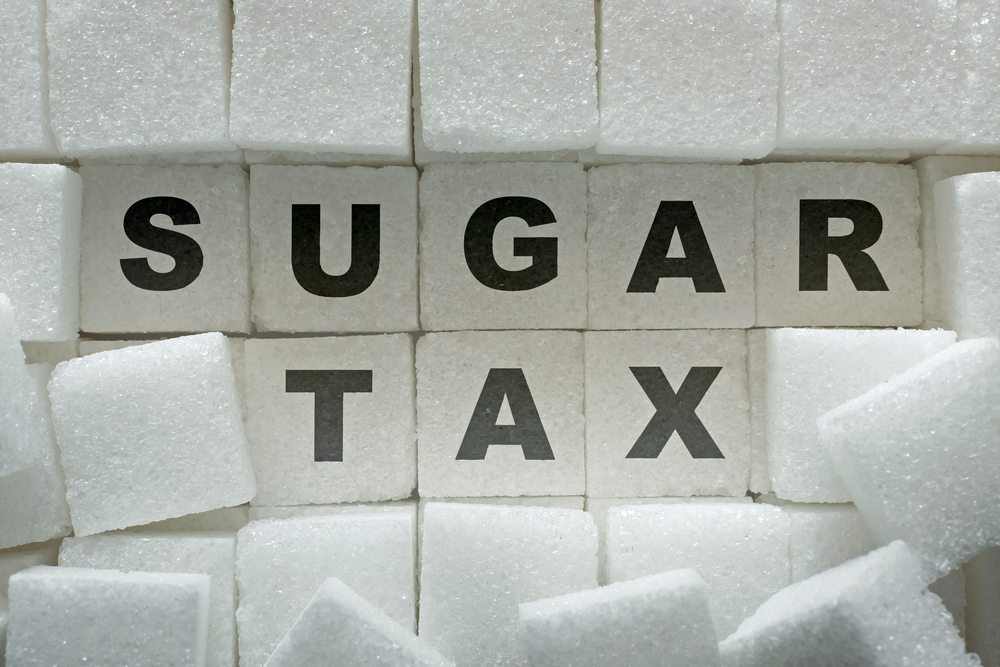As the sugar tax on soft drinks comes into force, one organisation has raised concern that the move doesn’t go far enough to reverse the effects.
The Soft Drinks Industry Levy (Enforcement) Regulations 2018, otherwise known as the sugar tax, has now come into force, being hailed as one of the UK’s most revolutionary health initiatives in recent years. The sugar tax on soft drinks will place a levy on manufacturers of 18p per litre for fizzy drinks with total sugar content above 5g per 100ml and 24p per litre drinks with more than 8g per 100ml.
However, its introduction does not go far enough in addressing Britain’s current dental health crisis which has been largely caused by sugar, according to the Oral Health Foundation, which says that no funds have been pledged towards improving education on oral health or on action to help reduce the impact of sugar on teeth.
Dr Nigel Carter OBE, Chief Executive of the Oral Health Foundation, commented: “The sugar tax falls short when it comes to oral health and it does not do enough to address the crisis we have seen develop as a result of excessive sugar consumption in the UK over recent years.
“This is part of a wider children’s dental health problem in England. More than one in 10 (12 per cent) three-year-olds suffer from tooth decay and this increases to one in four (25 per cent) as they reach five-years-old. The Government has somewhat ignored this when they developed the sugar tax and have failed millions of children by not recognising and reacting effectively enough to the risk posed to their oral health by sugary drinks.”
He continued: “Sadly, some companies have seen the sugar levy as an opportunity for double profiteering, with Coca-Cola not only passing on the cost of the sugar levy to consumers with price rises but also reducing the sizes of their drinks across their range. It is highly unlikely that price increases or pack size reductions will have any effect on sales, as demonstrated by recent changes seen in some chocolate and confectionery products. Unfortunately, in its current state, we cannot see the sugar tax having any meaningful effect on oral health.
“We are also severely disappointed that there seems to be no sustained effort by Government to build on the current sugar tax proposals
which have turned a blind
eye to addressing pure fruit juices, milk-based drinks and multi-packs; products which are also highly dangerous to our health.”
Also commenting is Food Standards Scotland, with Chief Executive, Geoff Ogle, commenting: “We welcome this measure and the positive steps industry has already taken by reformulating some soft drinks products so they contain less sugar. While we hope the soft drinks industry levy will help drive down the consumption of sugar and reduce calorie intake, the evidence in Scotland is that much more needs to be done. Our recent situation report: The Scottish Diet: It needs to change 2018 has shown that while purchase of sugary soft drinks had decreased from 2010 to 2016, this has been offset by an increase in sugar purchased from other foods.
“We have been encouraged by the speed at which the proposed sugar levy generated changes to the formulation of soft drinks and the question to be asked now is if other foods have the same amount of sugar or indeed more shouldn’t they be subject to a levy too? Reformulation is certainly helping with sugar reduction, but the levy introduction has shown the pace that can be generated when changes such as this are introduced.”
Furthermore, the British Soft Drinks Association said that whilst it recognises health issues associated with obesity are a serious matter, it’s important to note that obesity is a complex issue with a number of factors and there is no evidence to suggest a tax will reduce
obesity.
In a statement, it said: “As an industry, we recognise we have a role to play in tackling obesity. Recent reports from Food Standards Scotland outline that levels of obesity are not reducing and that the decline in sugar from soft drinks has been offset by increases in sugar from other foods. We all have a role to play in helping to tackle obesity and we hope our actions on sugar reduction, portion size and promotion of low and no calorie products set an example for the wider food sector.”


